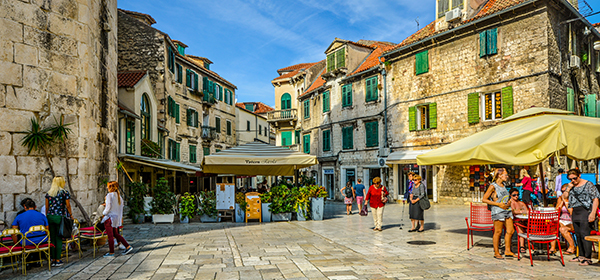
1. Understanding the Driving Culture
Driving in Split can be a bit challenging for newcomers due to the narrow streets and heavy traffic, especially during the summer tourist season. Croatian drivers are known for their aggressive driving style, so it’s important to stay alert and cautious. Always adhere to the speed limits and traffic rules.
2. Car Recommendation
Considering the narrow streets and limited parking spaces in Split, it’s advisable to opt for a smaller, compact car. This will make it easier to navigate through the city and find parking. Manual transmission cars are more common in Croatia, but automatic cars are also available.
3. Parking in Split
Finding a parking spot in Split can be quite difficult, especially in the city center and during the peak tourist season. Most parking spaces are paid, and the cost varies depending on the zone. The closer you are to the city center, the more expensive it is. There are also several public garages and parking lots available.
4. Driving with an International License
Foreigners can drive in Croatia with an international driving permit (IDP) along with their valid national driving license. This is valid for a period of up to six months. After this period, you will need to obtain a Croatian driving license.
5. Obtaining a Croatian Driving License
To obtain a Croatian driving license, you will need to pass a driving test in Croatia. This includes a theoretical and practical exam. Note that the test is conducted in Croatian, so you might need an interpreter if you don’t speak the language. You will also need to provide a medical certificate proving you are fit to drive.
6. Be Aware of Pedestrian Zones
Split has several pedestrian zones, particularly in the old town. Be aware of these zones and avoid driving in these areas as fines can be hefty. Use public transportation or walk when visiting these parts of the city.
7. Always Have Change for Tolls
There are several toll roads in Croatia, so it’s always a good idea to have some change with you. The tolls can be paid in either Croatian Kuna or Euros.


